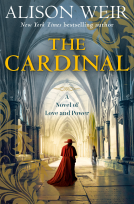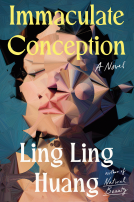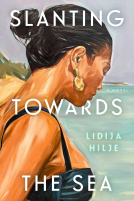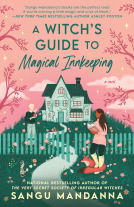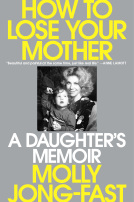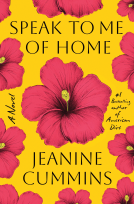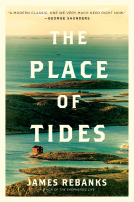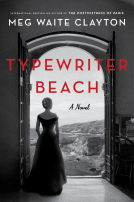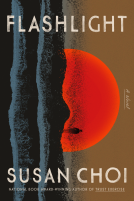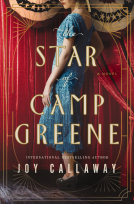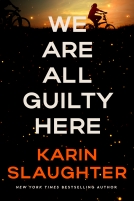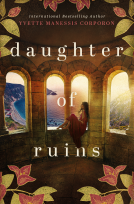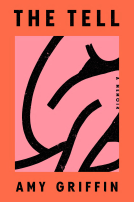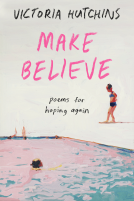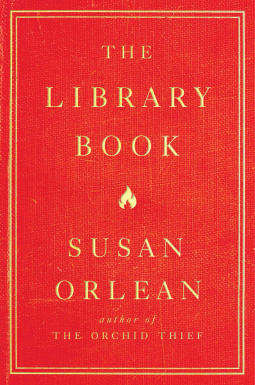
The Library Book
by Susan Orlean
This title was previously available on NetGalley and is now archived.
Send NetGalley books directly to your Kindle or Kindle app
1
To read on a Kindle or Kindle app, please add kindle@netgalley.com as an approved email address to receive files in your Amazon account. Click here for step-by-step instructions.
2
Also find your Kindle email address within your Amazon account, and enter it here.
Pub Date Oct 16 2018 | Archive Date May 31 2020
Description
A WASHINGTON POST TOP 10 BOOK OF THE YEAR * A NEW YORK TIMES BESTSELLER and NEW YORK TIMES NOTABLE BOOK OF 2018
“A constant pleasure to read…Everybody who loves books should check out The Library Book.” —The Washington Post
“CAPTIVATING…DELIGHTFUL.” —Christian Science Monitor * “EXQUISITELY WRITTEN, CONSISTENTLY ENTERTAINING.” —The New York Times * “MESMERIZING…RIVETING.” —Booklist (starred review)
A dazzling love letter to a beloved institution—and an investigation into one of its greatest mysteries—from the bestselling author hailed as a “national treasure” by The Washington Post.
On the morning of April 29, 1986, a fire alarm sounded in the Los Angeles Public Library. As the moments passed, the patrons and staff who had been cleared out of the building realized this was not the usual fire alarm. As one fireman recounted, “Once that first stack got going, it was ‘Goodbye, Charlie.’” The fire was disastrous: it reached 2000 degrees and burned for more than seven hours. By the time it was extinguished, it had consumed four hundred thousand books and damaged seven hundred thousand more. Investigators descended on the scene, but more than thirty years later, the mystery remains: Did someone purposefully set fire to the library—and if so, who?
Weaving her lifelong love of books and reading into an investigation of the fire, award-winning New Yorker reporter and New York Times bestselling author Susan Orlean delivers a mesmerizing and uniquely compelling book that manages to tell the broader story of libraries and librarians in a way that has never been done before.
In The Library Book, Orlean chronicles the LAPL fire and its aftermath to showcase the larger, crucial role that libraries play in our lives; delves into the evolution of libraries across the country and around the world, from their humble beginnings as a metropolitan charitable initiative to their current status as a cornerstone of national identity; brings each department of the library to vivid life through on-the-ground reporting; studies arson and attempts to burn a copy of a book herself; reflects on her own experiences in libraries; and reexamines the case of Harry Peak, the blond-haired actor long suspected of setting fire to the LAPL more than thirty years ago.
Along the way, Orlean introduces us to an unforgettable cast of characters from libraries past and present—from Mary Foy, who in 1880 at eighteen years old was named the head of the Los Angeles Public Library at a time when men still dominated the role, to Dr. C.J.K. Jones, a pastor, citrus farmer, and polymath known as “The Human Encyclopedia” who roamed the library dispensing information; from Charles Lummis, a wildly eccentric journalist and adventurer who was determined to make the L.A. library one of the best in the world, to the current staff, who do heroic work every day to ensure that their institution remains a vital part of the city it serves.
Brimming with her signature wit, insight, compassion, and talent for deep research, The Library Book is Susan Orlean’s thrilling journey through the stacks that reveals how these beloved institutions provide much more than just books—and why they remain an essential part of the heart, mind, and soul of our country. It is also a master journalist’s reminder that, perhaps especially in the digital era, they are more necessary than ever.
Available Editions
| EDITION | Other Format |
| ISBN | 9781476740188 |
| PRICE | $28.00 (USD) |
| PAGES | 336 |
Featured Reviews
 kATHLEEN G, Reviewer
kATHLEEN G, Reviewer
Is this a true crime story of arson or a love letter to libraries? It's both. The 1986 fire in Los Angeles destroyed more than a building and paper. Orlean delves into the fire and the subsequent arson investigation but equally importantly, she looks at the history of libraries and the role they play in communities. One of the best parts of this is learning how the community reacted to the fire= how it helped out. As someone who grew up with the Enoch Pratt Free Library as a safe place and a place of joy, this book was a must read for me. I still visit my local library weekly and regularly donate to it as well. Thanks to publisher for the ARC. Orlean has written a wonderful book that deserves a wide audience.
 KIMBERLE F, Librarian
KIMBERLE F, Librarian
My initial reaction to this book after reading 3 chapters or so was “Ooo, fire! Ooo, books!” Orlean’s writing feels like fiction not dry facts. I really enjoyed her writing. The Library Book starts with the author's love of libraries as a child, which switched to her love of buying (instead of borrowing) books when she became an adult. She then rediscovers her love of libraries when she has her own child. This part made me nostalgic. She then she describes the LA Central Public Library, the collections, the art, the people, and the building. All of it sounded very cool and now I want to visit it. I think book lovers will really enjoy this book for many reasons.
After those beginning chapters, she describes the fire. On one the hand my heart hurts at the damage done by the fire and water. On the other hand the fire is so very cool,so very large, and so extraordinary. I also loved the description of how the city of LA came together to help the library: "They formed a human chain, passing the books hand over hand from one person to the next, through the smoky building and out the door. It was as if, in this urgent moment, the people of Los Angeles formed a living library. They created, for that short time, a system to protect and pass along shared knowledge, to save what we know for each other, which is what libraries do every day.”
Another aspect of the book I found delightful are book titles with their library info at the beginning of each chapter. You can guess what the chapter will be about from the books listed. I appreciated how Orlean goes back and forth with the time in each chapter. One chapter she is following librarians of the LA public library around in present day, the next chapter she is interviewing folks about the fire or describing the fire, and the next chapter she is giving us anecdotal library history. I found the history of library fires fascinating; although it did make me sad. She also tells stories about notable folks that were involved with the library. The past directors of the LA public library were some characters!
The question of whether or not Harry Peake started the fire, was there on the day of the fire, or was just lying for attention and was innocent is not answered. Read the book and tell me your conclusion. Personally, I think Harry was there but did not start the fire on purpose or accidentally.
 Darla D, Reviewer
Darla D, Reviewer
"Here is my story, please listen; here I am, please tell me your story," says the library. Susan Orlean weaves an amazing tale for us centered around the tragic library fire that devastated the Central LA Branch in 1986.
In this book, the story begins with a depiction of the fire itself then backtracks to tell the story of the LA library system and its many iconic leaders. In between we get updates on the investigation into the fire as well as chapters on the many ways a library is so much more than a storehouse for books.
All of us who love libraries will be uplifted by this love letter to libraries and the way they transcend the mere buildings and physical objects within. Highly recommended!
A big thank you to Simon Schuster and NetGalley for a digital ARC of this beautiful ode to libraries.
This book was gorgeous. The authors writing flowed and maybe want to run to the nearest library and just sit there and take it all in. The story centers around the LA library and the horrible fire that took place there and the mystery surrounding the fire and the suspected arsonist.
 Mary N, Reviewer
Mary N, Reviewer
I loved this multi-themed book. It combines true crime, mystery and history - just a few of my favorite genres - and then to be about libraries and their staff?!? I devoured this book. I was captivated by the writing, intrigued by the mystery and taught by the history. If that isn't the sign of a good book, I don't know what is! I received a copy from NetGalley and the publisher and this is my honest opinion.
Thank you to the publisher and NetGalley for an advanced copy of this book in exchange for my honest review. It was an absolute honor to read this publication as it celebrates one of my favorite places: the library. I thoroughly enjoyed Orlean’s exploration of the cultural history and importance of the library. By using the Los Angeles Public Library system as an example, Orlean wonderfully documents this most noble institution and opened my eyes to the workings and professions of this truly amazing place. The twist of the Central Library arson mystery added a thread of intrigue that helped to exemplify Orlean’s journalist research skills. I especially relished the detailed touch of the book titles and their Dewey Decimal call numbers that proceeded each chapter. Overall, what a great book to illustrate society’s continued interest and investment in the library system, shedding light on past and future. And it is true, librarians are superheroes!
I don't know what I expected from 'The Library Book'. I thought it was going to be something great, since I didn't remember seeing even one bad review, but I simply couldn't understand how it could be THAT awesome.
Well, joke's on me, because it WAS! This is a book that has a right amount of everything in it. Stories and facts, serious and funny, uplifting and melancholic. And when you feel you've had enough of one - Orleans changes for the other. There's a lot of directions this book is going, and references all across, but somehow (at least to me) it was all magically traceable. At first I didn't understand the purpose of not having a clear, linear outline, I felt like the discussion was going on in kind of a zig-zaggy way. And it was. But that's what's awesome about it! Well, one thing that is.
While reading this non-fiction book, most of the time I didn't feel like I was actually reading something factual. It was the story of the library. The story of the fire. And also, the story of every single individuals mentioned. You can feel that the author actually cares about the people she meets while she researches for her book. She paints them very vividly, they seem like characters in a novel, not like data mentioned in a study. And not just the people - the places, too! I felt I was there. Places I've never visited before, places I haven't even seen a picture of seem to be familiar to me now. (Though to be fair, there are actual photos in the book - but I think the description is way more vivid!)
I learnt so much from this book, but not in a textbookish way. It was all fun! I learnt of librarians and how colorful a company they are, of Los Angeles, of fire's nature, of arson investigations, even of the restoration of books damaged by fire and water. The author's person is also embedded in everything she writes about, but it's not TOO much. It's enough to give the book a soul, but not so much that it loses credibility of being non-fiction. I love that we get to see her thoughts both as a reader and a writer. Also, while it was all heartbreaking (I almost teared up when the day of the fire was describe), and I was so sad for all the books, she somehow managed to make me feel amazed by the elegantly powerful fire that has such a natural force I can barely fathom sitting here in my undisturbed little environment. That's something unique in a non-fiction book!
This was my first read by Susan Orleans, but I'm sure it won't be my last!
 Paula L, Reviewer
Paula L, Reviewer
I liked most of this book, but sometimes it rambled and I would lose interest. Everything concerning the fire was so amazing, I wish there was a more clear cut explanation for its origin.
 Susan D, Reviewer
Susan D, Reviewer
In The Library, Susan Orlean has written a book that takes an institution we all are familiar with, most of us intimately from our own lives, then moves both inward to a closer look at Los Angeles Central Library and outward to the history of libraries in the United States and, more recently, the world.
As she begins with the Goodhue Library in L.A., the focus initially is on a disastrous fire which began on the morning of April 29, 1986. The fire was devastating but serves as a springboard for this book’s story of the development of the area and city of Los Angeles, the early identification of a need for some sort of library, the early characters and personalities of library employees and directors, and development of policies over the years as the library world itself grew and society changed.
Alongside the history of the library, Orleans also delves into the history of libraries in the United States and how they have both reflected and responded to major social changes. Through all the changes, war(s), the Great Depression, etc, even the move into the digital age, she finds that libraries have remained as centers of their communities.
There are anecdotes humorous, sweet and sad arising from Orlean’s interviews and research. Biographies of multiple interesting people involved with the library in L.A. And there is the side story of the investigation into the cause of the 1986 fire. The various strands are told in alternating chapters. I recommend this book for all of my library-loving, book-reading friends. I think you will all find memories from your lives in the The Library Book.
4.5*
A copy of this book was provided by the publisher through NetGalley in return for an honest review.
I never expected a book about a library fire to be unputdownable but it was. I was blown away by this effort by Susan Orlean.
Chock full of details surrounding the catastrophic Los Angeles library fire and fascinating info related to books and libraries, Orlean’s love for books is evident and she drew me in from the start. The book touched me in different ways and I ran the gamut of feelings amongst anger, sadness, joy and surprise. A few things that will stay with me include the heartbreaking loss of irreplaceable treasures, the surprising history of library burning, the fascinating and vast inner workings of a central library and a library’s broad reach within a community outside of its four walls.
Orlean’s story has renewed my love for libraries. One of my favorite books of the year.
For anyone who has ever loved books and libraries, this book is part mystery and part history, part elegy and part optimistic love story. It is only the most skilled writer who can take an event as unremarkable in the larger world as the LA Public Library fire of 1986--barely even covered in the media because of its cousin disaster the same week in Chernobyl--and make the reader care to follow along the journey from a century before its occurrence through the actual fire and beyond, connecting its cultural significance far beyond the obvious.
 Barbara J, Reviewer
Barbara J, Reviewer
Much to my surprise, <i>The Library Book</i> was a fascinating and unexpectedly entertaining read. Perhaps that’s because I rarely read nonfiction for pleasure but, more likely, it was due to the talents of Susan Orlean.
Reading this book was both enlightening and a trip down memory lane. Described as a “love letter to the institution,” Orlean covered a vast amount of territory beginning with well researched details of the Los Angeles Central Library fire of 1986 through to the reopening six and a half years later. This was all new territory for me which, as Orlean noted, isn’t surprising. This event escaped much national notice as it was buried behind headlines of the Chernobyl disaster. Her narrative meandered through the sights and sounds of the library portraying it almost as if she was describing a living element. Along the way she followed all the people who came and went either briefly as patrons, visitors, and tourists, or those who were much more involved including the staff, restorers, firefighters, and lawyers as well as the prime arson suspect
<i>The Library Book</i> also touched quite eloquently on the emotional aspects of the library/ reading/writing experience. Personally, I made number of connections with my own experiences with libraries and reading. One such connection was a childhood memory of all the trips I made to the public library in my hometown which was then located in an old house. Prompted by Orlean’s words, I even recalled the smells as walked in that door so many years ago. I remembered that proud and exciting day when I was finally old enough to have my own library card. And how, way back then before the technology of the past 30 years, we wrote our names in little boxes on cards located in pockets inside each book.
If you’re a reader, a writer, a lover of books and libraries, you won’t want to miss this celebration of one particular library- symbolic of libraries everywhere.
 Jennie C, Reviewer
Jennie C, Reviewer
The Library Book is okay. It is the history of the Los Angeles Public Library with a focus on the 1986 fire. The book's chapters go back a forth between the history of the library and its managers, the fire investigation, and Susan Orlean's meetings with the current staff of the library and what the library's programs.
I thought the book was supposed to be about the fire and while it was it also included more history about the library than I was expecting. If you are interested in libraries and books give this one a try.
 Cathy L, Reviewer
Cathy L, Reviewer
In 1986, a devastating fire tore through the Los Angeles Public Library; it lasted seven hours and burned 400,000 books and damaged 700,000 more. Thirty years later, it’s still a mystery if it was arson, even though investigators strongly suspected a man of setting it.
Susan Orlean looks into the case as part of her Library Book, but this narrative explores much more than the fire and its aftermath. Orlean relates the history of the library in Los Angeles and its librarians but also writes about libraries and their keepers in general, about their role in society and the place they hold in so many people’s hearts. This is a paean to books, their homes, and the people who love them.
I had not read any of Orlean’s previous books, so I was eager to try this one, in part because of her reputation as a consummate writer and in part because I couldn’t resist the subject matter, being a book and library lover myself. I was not disappointed. I’m guessing she can make anything interesting with her skill and style and warm approach to the subject matter. Here, she goes back and forth between the history of the Los Angeles library and the men and women who have led it and the story of the 1986 fire, the investigation and the way people pulled together to try to rescue as many books as possible and rebuild.
Her style had me wanting to highlight probably a third of the book. One example shows what a library is and what her writing is like: “In the library, time is dammed up — not just stopped but saved. The library is a gathering pool of narratives and of the people who come to find them. It is where we can glimpse immortality; in the library, we can live forever.”
I loved her description of the father of the arson suspect: He had “silvery hair that stuck out straight, as if it were a quiver of exclamation points.”
All of it was compelling as an interweaving collection of stories about the Los Angeles library, books and the people who work for and use libraries in general. And all of it is irresistible for people who love books — who else would pick up this book, after all? I savored it, learned from it, and pondered on important points it brought up, such as how libraries are community centers, gathering places that are open to everyone (including the homeless, which means librarians have had to work within the community to try to tackle this complex problem), places that have been and still are vital centers of not just learning but engagement and doors for opportunity for those who need help the most. They have grown and evolved and survived, even and especially in the toughest economic times, because they may be needed the most in downturns.
If you’re not already a believer in the power of libraries, you will be after reading The Library Book.
When I started reading The Library Book, I was expecting a true crime account of the April 1986 library fire at the Los Angeles Public Library. While her investigation of the fire was what drove Ms. Orlean to write The Library Book, ultimately it’s more of a memoir of the Los Angeles Public Library (LAPL). The story of the fire and it’s investigation does weave in and out, but this really is about the library and a love of books.
From a true crime aspect, I was a little disappointed. Ms. Orlean’s research guides us through the fire (which she describes beautifully) and it’s investigation. While they had a strong suspect, officially the arsonist remains a mystery. I would have liked to see justice for such a crime, but obviously this is not the fault of the author.
That being said, from a memoir (and book lover’s) perspective, The Library Book is very interesting. As Ms. Orlean leads us through the history of the LAPL, you can tell this book is a labor of love. She introduces us to the past head librarians, many of whom were strong personalities that helped shape the library as it is today. We learn about the architecture and design of the building itself. She takes us through the modern library and it’s daily operations, from the shipping department to the people fielding telephone questions, to cataloging in the map room, to the librarians on the floor. Learning the stories of the people and patrons who collectively make the library the wonderful place that exists today is what kept me turning pages.
The library fire is just one piece of this library’s history. While it’s an interesting event, it’s the rest of the history and the people Ms. Orlean profiles that makes this book an enjoyable read for any book lover.
 Heather F, Reviewer
Heather F, Reviewer
Orlean does for libraries what she did for orchids. A great fire at the Los Angeles Library is a stepping off point for a book about crime and community. The uses of the library are countless, beyond the housing of Books. The evolution of the librarian is depicted through the history of the Los Angeles library system. Reflecting the history of the nation, the needs of the library flourished. Orleans captures the real life characters of librarians and arson suspects for the page. A delightful informative book.
 Sue Em D, Reviewer
Sue Em D, Reviewer
Who would ever have imagined it? Even as rabid a bibliophile as I am, I
could not imagine how a book ostensibly about the 1986 L.A. Library fire could be so fasinating, riveting even. While the fire grounds the book, it explores all the roles that libraries have to play in our communities and our lives, the history of L.A. Library and it's librarians, the salvage operations for the many damaged books, and the search for the cause or culprit. As Orlean writes,
"The library is a whispering post. You don’t need to take a book off a shelf to know there is a voice inside that is waiting to speak to you, and behind that was someone who truly believed that if he or she spoke, someone would listen."
Thank you, Susan Orlean, for doing that tremendous amount research and believing your inner voice, you are right, we are listening. Highly recommended!
 Suzanne S, Reviewer
Suzanne S, Reviewer
Susan Orlean, The Library Book (Simon & Schuster, 336 pp.) Nonfiction. You probably remember Susan Orlean from her book The Orchid Thief. In this book, Orlean tells the story of how the Los Angeles Library went up in flames in 1987. The fire was deliberately started and spread quickly because library upgrades hadn’t been implemented due to lack of funding. First theme: the wonder and treasure that is a library, and the history and resources that are lost when it is lost. (Consider the museum fire in Brazil this year.) Second theme: the mystery of who set the fire. Police suspect a young, attractive man named Harry Peak, who aspires to be an actor but maybe without the acting part (he has stage fright). Third theme: the love of libraries. I was one of those library kids who loved being able to roam the stacks and go home with a new pile of books every time I tore through the old pile. Orlean had me reminiscing about those days and what a big part the library played in my childhood. I took a sleeping pill before I started this book, but then I regretted that I couldn’t stay up all night reading it. Thanks to NetGalley and the publisher for an advance reader’s copy of this one.
 Jennifer C, Reviewer
Jennifer C, Reviewer
In April 1986, there was a large fire in the Los Angeles Public Library; so large, in fact, that over four hundred thousand books were burned completely and seven hundred thousand more were damaged. Initially, the thoughts were that this was arson, yet no one has been convicted, and a mystery still surrounds the act.
The Library Book accomplishes several things. First, Susan Orlean has researched the history of the LA Public Library, and believe me, it’s intriguing and page-turning.
When examining the fire, Orlean presents a key player. Though he is a suspect, actor Harry Peak denies any involvement. Susan Orlean tells his backstory and presents the evidence clearly and with tension in such a way that it could be on 48 Hours or Dateline.
Susan Orlean lovingly places her endearment for books on every page of this wonder. Her love for libraries and their vital role in communities is also resonantly conveyed.
I don’t want to say too much in this review because this book is all about the discovery. It’s unique and heartwarming, even in the midst of a tragedy that would hurt any bibliophile’s heart. More than anything, it’s an ode to books and a gift to those who love them.
Thank you to Simon Schuster for the ARC. All opinions are my own.
Although a great deal of this book is about the fire that burned the Central Library of Los Angeles in April of 1986, destroying almost half a million books, and about the young man who many thought started the fire, it is really an ode to books and libraries in general. Just about every aspect is covered, from the history of libraries and books to their challenging future.
I adored every minute spent with this book and thank the publisher for granting me the privilege of reading an arc via Net Galley for my honest review
 Kira M, Educator
Kira M, Educator
I received this book in exchange for a honest review from NetGalley.
I adored everything that this book is about. It is more about a community and its ability to overcome adversity and the effects of libraries in communities then it is about the crime of arson. As a librarian I see this effect everyday in peoples lives. This book puts into words the idea of how the loss of a true third space can change a community and bring it together. It is a beautiful ode to libraries and what they can do for a community.
 Elizabeth R, Reviewer
Elizabeth R, Reviewer
This is a comprehensive history of the Los Angeles Library, as well as an informative and extremely interesting history of libraries in general! I loved it. The author spent a great deal of time talking about the LA library fire in 1986. I even lived in northern California at the time and can't remember hearing about it. I was glued to the page.
Libraries have been an important part of my life since I was a young child. I even briefly wanted to become a librarian. This book struck a lovely nerve. I wish my mom was alive to read it as well. It is well researched and very detailed. A truly great book for all library lovers and supporters.
Thank you to NetGalley and Simon & Schuster for the opportunity to read and provide an honest review of this book.
 Susan M, Reviewer
Susan M, Reviewer
New Yorker staff writer, Susan Orlean write the story of the Los Angles Public Library fire on April 29, 1986. It burned down that day from a fire that starts inside the library. Though no one died from the fire, several people were injured. An actor, Harry Peak is arrested for the fire that destroyed the library. Included in this book, are memoirs, biography, history and science. One learns the history of libraries. One discovers how libraries evolved. Libraries helped people during the depression and wars. You learn how library’s struggle to stay afloat with limited funds. This is a book not to miss!
This is really two books in one. The first is a record of the devastating fire at the Los Angeles Central Library on April 29, 1986 and how the city and library service recovered. The second is a paean to libraries in general: what they offer to society, and how they work, in a digital age. One might assume that Book #1 is of most (or exclusive) interest to Californians, but if you’ve read other work by Orlean you’ll know that her delight in history’s oddballs (here, would-be actor and compulsive liar Harry Peak, who was arrested on suspicion of arson, and 1880s L.A. librarian Charles Lummis, who walked from Ohio to California) and offbeat stories comes through no matter what she’s writing about. And while she doesn’t seem as clued-in about the state of libraries as Marilyn Johnson (This Book Is Overdue!), Book #2 is sure to appeal to any book-lover who shares her childhood memories of trips to the library.
 Laurenne T, Librarian
Laurenne T, Librarian
Wonderful book! Informative and captivating. Loaded with interesting facts about many libraries, in addition to the story of the fire at Los Angeles Library.
 Susan S, Reviewer
Susan S, Reviewer
This was a fascinating book - I loved it! It told the story of the 1986 fire at the Central Library in Los Angeles as well as the story of the main suspect, Harry Peak and the history of the library and it's librarians. If you are thinking this does not sound at all interesting, you would be totally wrong. Susan Orlean is a wonderful writer and she presents the story and the history in such a way that you will not want to put the book down. Book lovers will thoroughly enjoy this book. It gave me a new appreciation for libraries and what they bring to our lives.
 Lucy B, Educator
Lucy B, Educator
How can a lover of books resist a book about books? Such was my own dilemma with The Library Book by Susan Orlean. This one is a bit out of my normal go to reads being that it is non-fiction but occasionally I can’t resist when the book is about something that interests me and this one fit the bill wonderfully.
Once again Susan Orlean takes a relatively mundane subject and turns it into a compelling story. Although it begins with a spectacular, if awful, event -- a historic fire at the LA Library -- she takes off from there to explore the intricate life of the library and why it is such an important institution in America. Cherish your library card, people!
 Wendy R, Librarian
Wendy R, Librarian
Brilliant book! It opens with the fire that consumed the books of the Los Angeles Public Library in April, 1986.
The story encompasses so much more. The reader is taken on a journey of library discovery. We learn the history of libraries from their humble beginnings to the purposes of libraries today which involve all aspects of life everywhere.
The world of the librarian is explored. We learn the history of the library leaders who were so diverse and fascinating. Orlean relates her fascination with libraries from early times when she and her mother went on memorable trips to select any books that interested her. What's especially riveting was the nature of the fire. Did Harry Peak, the accused, set the fire or not? The reader is left to decide because there there was never any definitive answer.
Orlean's love of libraries is apparent through the beauty of her writing.
"I have come to believe that books have souls—why else would I be so reluctant to throw one away?"
When I first started The Library Book, I thought it was going to be a book about the fire that took place at the Central Library in LA back in 1986. And while Orlean does discuss that event in great depth, including details about the investigation and subsequent court cases surrounding it, she also talks about the science of arson and the progress that has been made in that area since this fire occurred. The book is written in alternating chapters starting with the fire and working up to the present time of her investigation. In the alternate chapters, Orlean talks about the history of libraries and librarians and how those individuals helped to shape what libraries look like today and the functions they serve.
To say I loved this book would be an understatement of epic proportions. Orlean is incredibly adept at capturing parts of history and turning them into a book as compelling and page turning as any great mystery or thriller. Learning about the fire at Central Library was fascinating and I had a hard time wrapping my mind around the power and magnitude of the fire that raged for more than seven hours and destroyed over four hundred thousand books. The fire captain described the fire as being so hot that it was completely colorless so that they were able to see through it to the other side of the room. Of all the crazy things I learned while reading this book, that one has stayed with me.
Before reading this book, I had no real idea of what it meant to be a librarian beyond the functions I see them serve any time I visit–they help answer questions, find books and other resources, and make recommendations. But libraries function as so much more than a place to go to check out books and use the internet. They are open and free to everyone, welcome everyone, and provide vital functions to those who may not have access otherwise. Because of this, along with all of the basic straightforward functions a librarian serves, they also play the role of a social worker. If I could go back and do it all again, I would do whatever it took to become a librarian without doubt or hesitation.
"Every problem that society has, the library has, too, because the boundary between society and the library is porous; nothing good is kept out of the library, and nothing bad."
I am immensely glad that I read The Library Book. Because I lack free time and read to escape, making the conscious choice to pick up a nonfiction book does not happen often. This book did not feel like so many of the nonfiction books I’ve read in the past. It was never a dry presentation of facts, but a story full of wit, unforgettable characters, and compelling history woven together into a story I found impossible to put down. Susan Orlean has written several other books, and I will definitely be looking into those soon. If you are a lover of books and the library and enjoy history, you should not hesitate to pick this one up.
A big giant thank you to Netgalley for a copy of this book in exchange for my honest opinion!
 Sarah M, Reviewer
Sarah M, Reviewer
I loved this book for many reasons, but the biggest reason is that it felt like a love letter to libraries with a side true crime story. Like a true nonfiction writer, Susan Orlean dives into the history of the Los Angeles Public Library. This helps you visualize the importance of this building as a staple in the Los Angeles community. Then she follows this up by relating the details of the Los Angeles Public Library fire, from interviews with staff, who worked at the library at that time, to the entire process of cleaning up and rebuilding after the fire. Like so many people I have talked to about this book, I was not aware of the 1986 fire, and as far as I am aware, this book is the only literature out there that discussing this historical event in detail. What I found really interesting was the section that described how the water-damaged books were recovered and restored and the methods used to do so. It was somewhat a relief to know that at least some books were saved.
Just as I am sure it was hard for the author, it was equally hard for the reader to read about the author's experience burning a book, but the visual was important. I do agree that choosing Fahrenheit 451 was appropriate too. As hard as it was to read about one book being burned, how could anyone set a whole building of books on fire?!!! The author investigates the theories of suspects, as this crime is still unsolved. She gives us background into Harry Peak, who was a suspect, including interviews with people who knew Harry.
She really wants you to care about the Los Angeles Public Library fire and care about libraries in general. The author describes in detail the daily tasks of librarians. No...it is not just shelving books. I learned first hand a few years back when I took a temporary job working in my local public library. Libraries have always been important to me and continue to be a special place that I love to visit. When I received an opportunity to work in one, I couldn't help but think: "Dream job!". Like I said though, it was not just shelving books, it was helping members of our community. I spent a lot of time helping library patrons navigate sites on the computer when they were trying to apply for jobs and many other important tasks. We were also one of the first buildings in our community to open up after a hurricane caused tornado and massive flood damage to most of our area. We opened to provide library patrons with computer access to start applying for FEMA aid. I had never had to do such a thing in my life, but I quickly tried to learn how the FEMA system worked, so I could help as many people as possible. Those were such rewarding moments, when you know that you are truly helping people in need. However, my favorite moment in the library was when someone came up to me and asked me to help her find some Jane Austen books. I am a huge Jane Austen fan, and I was so excited to get that question. I could then follow-up with a question of whether she wanted works by Jane Austen, books about Jane Austen or Jane Austen inspired fan fiction. My enthusiasm must have been contagious, because the patron smiled and said, "How about all of the above." That one-on-one relationship and service is so important. Yes...as stated in the book, I also got my share of unusual phone calls. For example, there was an individual who would call the library almost every day, give us a word, and ask us to use that word in a sentence.
Libraries do not just provide books, but they provide services. I am glad that this author brought to our attention a historical event unknown to most of us, that also expresses the importance of libraries. I highly recommend this read!
Readers who liked this book also liked:
Ling Ling Huang
General Fiction (Adult), Humor & Satire, Multicultural Interest
Karin Slaughter
General Fiction (Adult), Mystery & Thrillers, Women's Fiction
Yvette Manessis Corporon
General Fiction (Adult), Historical Fiction, Women's Fiction
